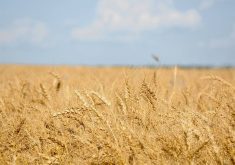Grain handling firm Upper Lakes Group has reached an $85 million deal to sell its fleet of freighters and its interest in the Great Lakes and St. Lawrence shipping business.
The deal, expected to close by the end of March, will see Algoma Central, ULG’s partner in Seaway Marine Transport, buy out ULG’s stake in Seaway Marine and ULG’s 11 vessels and related assets.
The 11 vessels include four gearless and seven self-unloading bulk freighters. Algoma will also get ULG’s share of two gearless and two self-unloading bulk freighters Algoma and ULG now co-own, and ULG’s interest in a self-unloader now being built at Chengxi Shipyard in China for delivery in July.
Read Also

Pulse weekly: Canadian pea/lentil exports slow to start 2025/26
Canadian pea and lentil exports were down in November, with total movement of the two pulses during the 2025/26 (Aug/Jul) crop year-to-date running behind the year-ago pace, according to the latest international trade data from Statistics Canada released Jan. 29
As well, Algoma will get a second gearless bulk freighter now on order by ULG from Nantong Mingde Shipyard in China. The vessels on order will all be operated by Seaway Marine, as will two new gearless lakers to be owned by the Canadian Wheat Board.
Combined with its own vessels, the acquisition of the ULG fleet and the remaining interest in Seaway Marine “will allow Algoma to enhance its focus on its domestic dry-bulk marine transportation segment and the very important task of fleet renewal,” Algoma CEO Greg Wight said in his company’s release Friday.
Privately-held ULG’s chairman, Toronto businessman Jack Leitch, said in a separate statement on the company’s website that he made the deal with “some regret and sadness.”
“By the end of this season the proud logo on the funnels of Upper Lakes vessels will no longer be seen on the Great Lakes or along the St. Lawrence River,” he said in his statement Friday.
“Capital requirements”
“The very difficult decision to sell to Algoma was based on a number of critical factors including the large capital requirements required to take the business forward for another quarter-century,” he said.
“We were also motivated by the desire to ensure the future employment of our employees and continued trade for our vessels. We decided that this could be best achieved by coming to an agreement with a company that has an equally long history in this business.”
Leitch and ULG CEO Pat Loduca emphasized in their statements that the deal with Algoma does not involve ULG’s assets in grain handling, marine repair, liquid bulk services, property management or other sectors.
ULG “opted to keep its remaining assets because we believe there is much potential here,” Loduca said.
ULG’s grain handling holdings include Soumat, a Winnipeg-based operation that wholly and partly owns a number of primary elevators and producer car loading sites, shortline railways, grain terminals, transfer elevators and bulk storage sites.
Related holdings include Soumat’s Mission Terminal, which operates the former Saskatchewan Wheat Pool 15 port terminal at Thunder Bay, Ont.; Trois Rivieres-based terminal companies Lake Superior Grain and Les Elevateurs des Trois Rivieres; and Great Lakes Grain, which markets mainly U.S. grain at Indianapolis, Ind.
ULG last fall announced plans for expansion at Mission’s Thunder Bay terminal, including three new storage bins, increased railroad trackage onsite and a new facility for Canadian Grain Commission staff.















